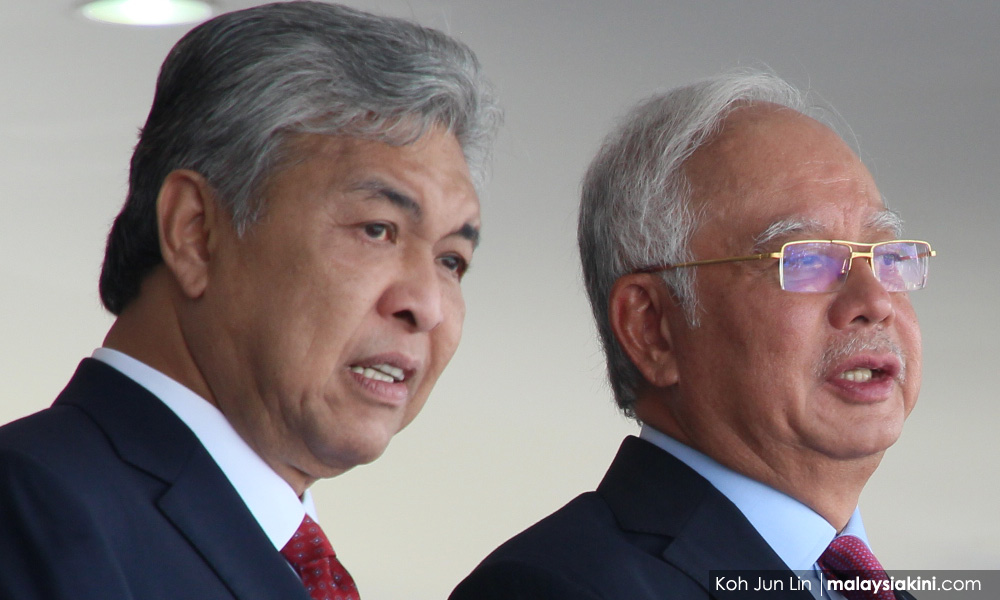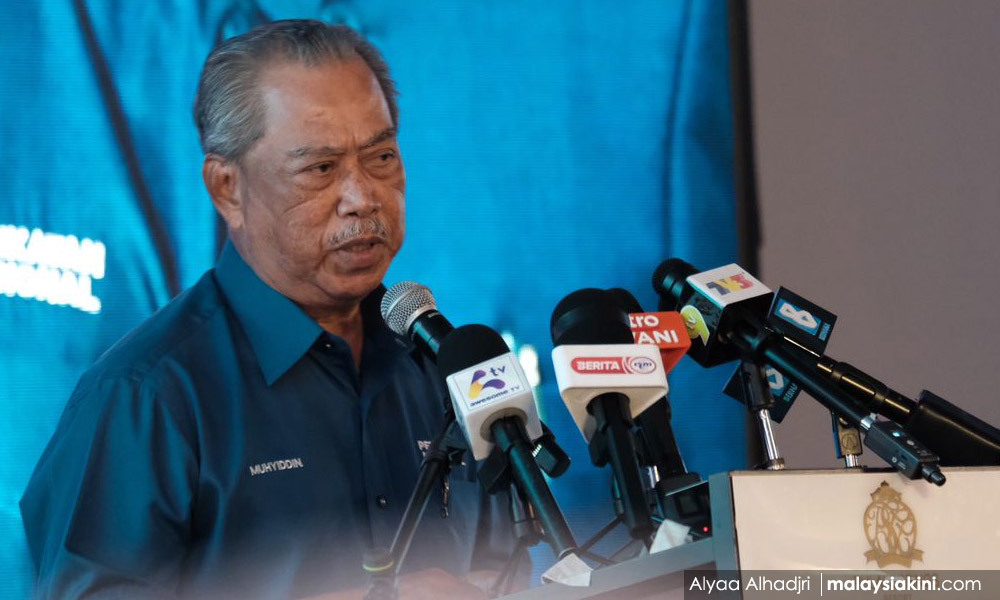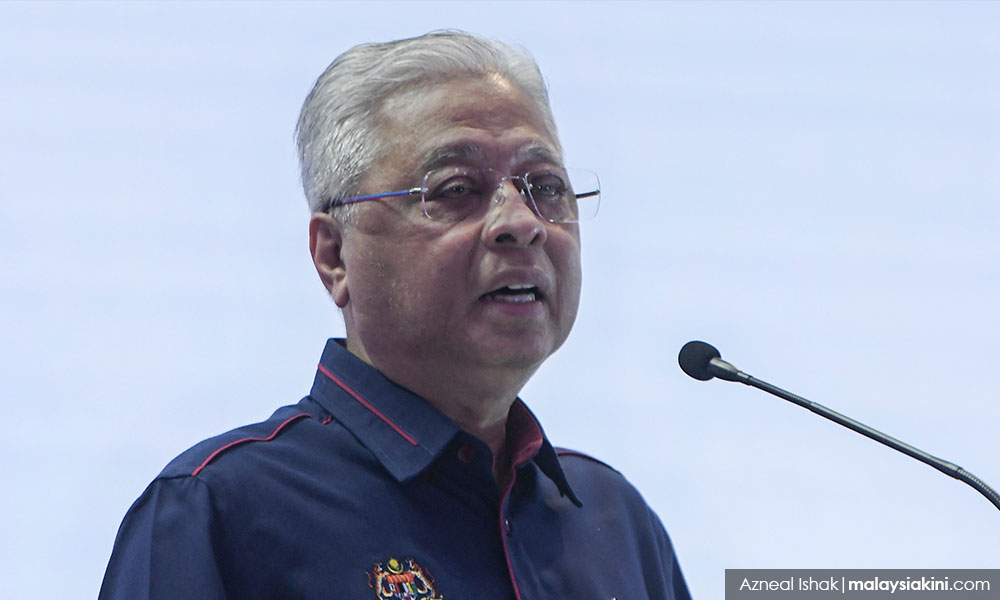Growing up, probably no one dared to tell young Ismail Sabri Yaakob “You would be prime minister one day.” He didn’t have the natural charisma of the country’s first prime minister Tunku Abdul Rahman, nor the pathological hunger for power of former prime minister Dr Mahathir Mohamad. Not even the gentle persuasion of Muhyiddin Yassin, the prime minister before him.
Ismail Sabri’s ascension to the premiership was so unlikely that he broke convention twice, by becoming the first non-party-president prime minister, and the first vice-president – three ranks lower, shared with two others – to do so.
Even as a prime minister, Ismail Sabri doesn’t get the respect he wanted in Umno. He is mostly overlooked, side-lined, and even shoved away on stage to make space for party warlords like Umno president Ahmad Zahid Hamidi and former prime minister Najib Abdul Razak.
Outside the party, coalition members treat him as a pushover. A rumoured PAS strategy document described Ismail Sabri as having an “inferiority complex that causes him to be slow and unproductive…[and] unpopular and without fresh ideas.” To most voters, he is unintrusive but also inconsequential – he is just there.
But that is my question: How is he still there?

For the longest time, Zahid and Najib had exerted pressure on Ismail Sabri to either call a snap election or be replaced. All in desperate attempts to avoid convictions.
Build momentum
Snap elections were called in Malacca and Johor to build momentum for an early general election; party meetings were called to force Ismail Sabri’s hand; poison pen anti-PM letters circulated among grassroots members. Many times, it looked like Ismail Sabri might give in.
Until something changed a few days ago. In typical forced-unity fashion, the Umno EGM decided that the party polls would be postponed to six months after the general election is called. The date for the general election, however, was up to the prime minister to decide.
On the surface, this seemed like a regular party decision, but underlying it was a rare compromise by Zahid and Najib. Failing to push for an early election, they handed that power to the prime minister, rightfully, for the first time; only retaining the power to pack their faction as candidates.
Though weak in appearance, Ismail Sabri defied his party dissenters by operating an unsunk ship. His first decision to sign a cross-party MOU proved a masterstroke – a wafer-thin majority government no longer plagued with collapse threats like Muhyiddin’s Covid-19 government.

Privately, Bera MP Ismail Sabri extracted incumbency advantages by distributing lucrative positions to those closest to him. Unassuming and inexpressive, he never over-reacted to Najib’s perceived, but unproven, rise in popularity. He pretended like he didn’t know, and now, he is on the cusp of an economic recovery that may reshape his image.
Shortest-tenured prime minister
If Ismail Sabri had this way, he would want to avoid being the shortest-tenured prime minister. The predicted snap election dates of July (after the first MOU), September (before the fourth quarter), or November (avoid uncommon full five-year term) will not suffice.
Only Najib has ever dragged out a full five-year term. But there are good reasons now for a later than earlier election. One, it will likely conclude at least one criminal case by Zahid and Najib.
Understandably, high-profile criminal cases involving voluminous documents take time, and a thorough court process protects fundamental liberties by erring on the side of innocence. Thus far, Zahid and Najib’s cases have been delayed partly by this typical bureaucracy, partly by the pandemic, and partly by the delay tactics of the defence lawyers.
Running out the election clock gives leeway to the judiciary to complete their tasks without intimidation and interference of any kind, especially from a supermajority government.
Two, it buys more time for the opposition to regroup. Notwithstanding a lack of will, the opposition would be given more space and time to come out with new ideas and faces to close the electoral gap, in what would otherwise be a BN landslide.
Whichever side you stand on, we have learned that a government with a smaller majority is more cooperative, potentially leading to lasting institutional changes like equal constituency allocation and the (pending) party-hopping law.
Three, it balances power within the largest governing party, Umno. Tapering the warlord strength among troubled factions like Zahid and Najib would be beneficial to everyone in creating more competitive politics that rely more on policy competence than bravado and pointless showmanship. The longer the election term drags, the weaker Zahid and Najib’s faction becomes.

In Ismail Sabri’s hands lay the sole constitutional prerogative to advise the king on when to dissolve Parliament. It does not belong to the cabinet, nor does it belong to Umno. With the Umno EGM behind him, this power becomes unfettered and personal once again.
Muhyiddin was prime minister from March 1, 2020 to August 16, 2021 – for a total of 533 days. To avoid ranking lower than his predecessor, Ismail Sabri must stay until Feb 6, 2023.
Once you’re already there, why not just run out the clock? - Mkini



No comments:
Post a Comment
Note: Only a member of this blog may post a comment.